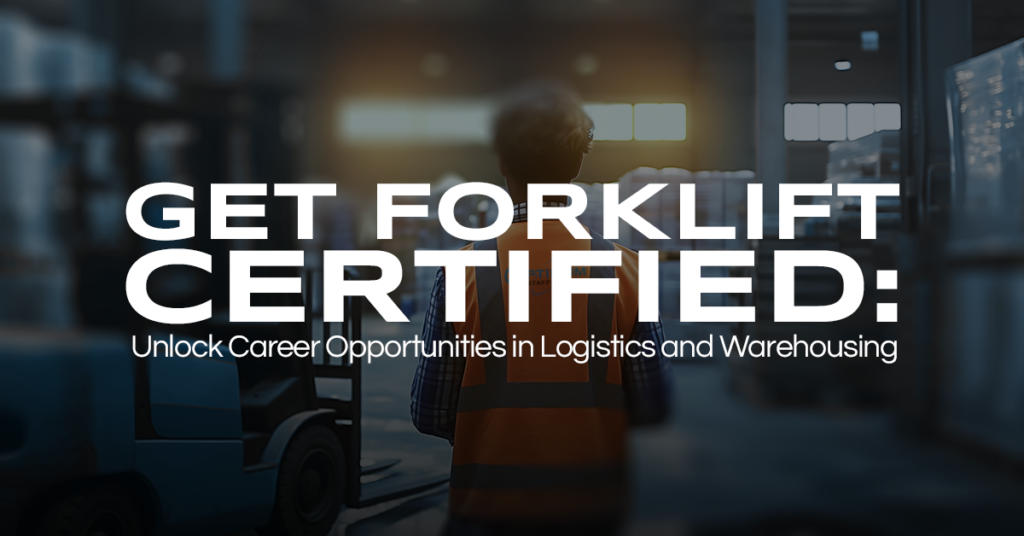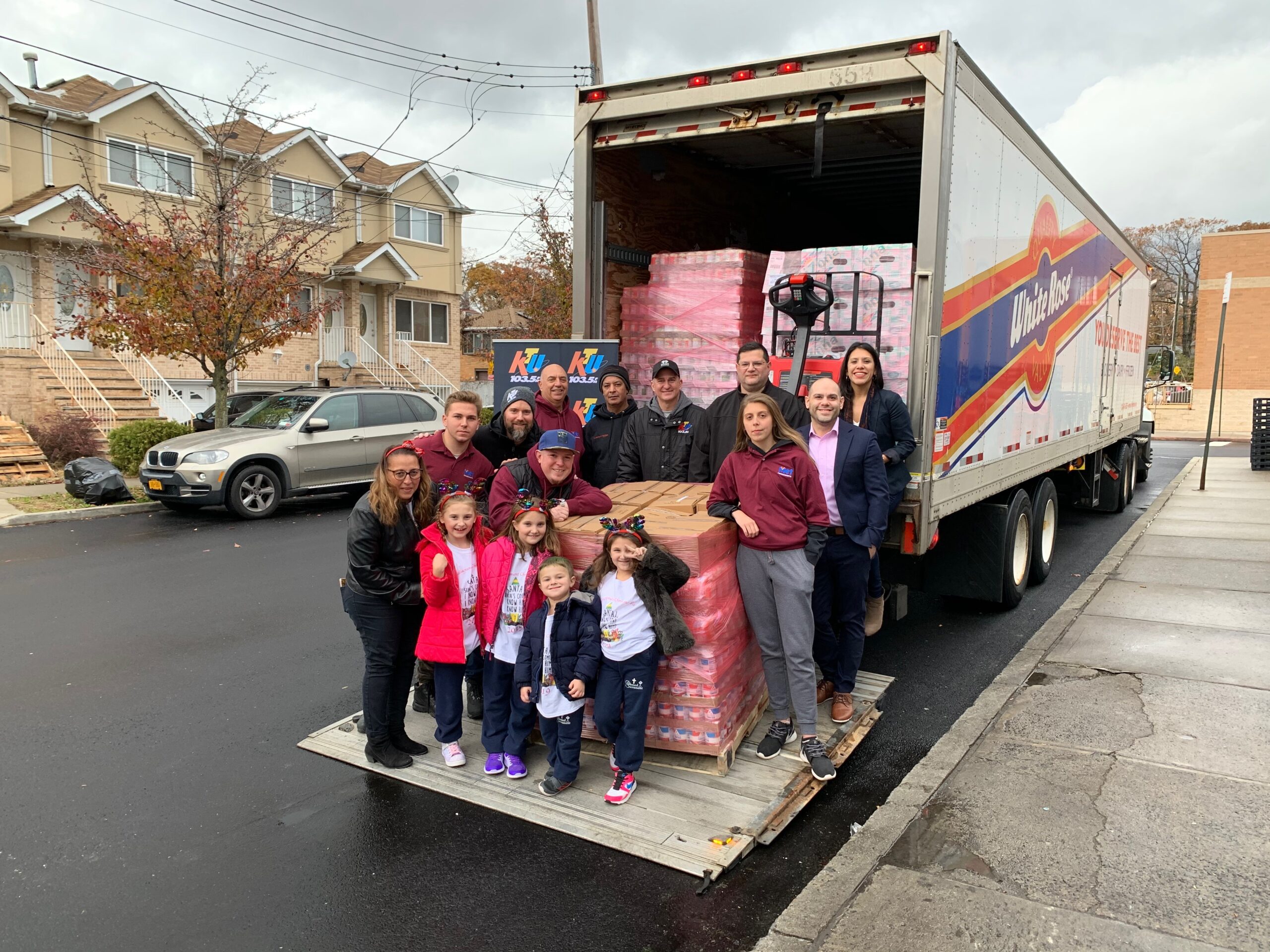
Becoming a Certified Forklift Operator
In our last article, we explored various industries facing staffing shortages and how specialized training and certification can open doors to new career opportunities. Now, let’s delve into a specific area: forklift certification. Whether you’re aiming to start a career in logistics, manufacturing, construction, or warehousing, obtaining your forklift certification is a crucial step. This guide will walk you through everything you need to know about becoming a certified forklift operator, from the benefits of certification to the detailed steps involved in the process.
Understanding the Role of a Forklift Operator
A forklift operator is a professional responsible for moving heavy materials using industrial machinery in environments such as warehouses, construction sites, and storage facilities. Operators work under the supervision of warehouse managers, supply chain managers, or foremen, and their role is essential in ensuring the safe and efficient transport of goods.
Importance of Forklift Operator Certification
The Occupational Safety and Health Administration (OSHA) mandates that all forklift operators must be certified. This certification is not just a formality; it plays a critical role in reducing workplace accidents and ensuring safety. Trained and certified operators are less likely to be involved in accidents, thus protecting themselves and their colleagues. Certification also opens up job stability and potential for promotions.
Age Requirements for Forklift Certification
When it comes to operating a forklift, age is an important factor governed by both federal and state regulations. Understanding these requirements ensures compliance with safety standards and helps maintain a safe working environment.
Minimum Age Requirement
To operate a forklift in the United States, you must be at least 18 years old. This requirement is mandated by OSHA under the Fair Labor Standards Act (FLSA). The age restriction is part of OSHA’s efforts to enhance workplace safety and ensure that operators have the maturity and responsibility required for handling heavy machinery.
Why Age Matters
- Maturity and Judgment: Operating a forklift involves significant responsibility and requires mature judgment. Younger individuals may lack the necessary experience and decision-making skills needed to safely handle such equipment.
- Workplace Safety: Forklifts are powerful machines that can pose serious hazards if not operated correctly. The age requirement helps ensure that only individuals with a sufficient level of maturity and understanding are tasked with operating these vehicles.
- Regulatory Compliance: Adhering to age requirements is crucial for employers to remain compliant with OSHA regulations. Failure to comply can result in hefty fines and increased liability in case of workplace accidents.
Exceptions and State-Specific Regulations
While the federal requirement is clear, it’s essential to check for any additional state-specific regulations that may apply. Some states might have further guidelines or restrictions related to the employment of younger workers in hazardous occupations. Always consult local labor laws to ensure full compliance.
Steps to Earning Forklift Operator Certification
- Determine the Type of Forklift Certification Needed
- Forklifts are categorized into seven classes, each requiring specific training:
- Class 1 Forklifts: Electric motor, sit-down rider, counterbalanced trucks (solid and pneumatic tires).
- Class 2 Forklifts: Electric motor narrow aisle trucks (solid tires).
- Class 3 Forklifts: Electric motor hand trucks or hand/rider trucks (solid tires).
- Class 4 Forklifts: Internal combustion engine trucks (solid tires).
- Class 5 Forklifts: Internal combustion engine trucks (pneumatic tires).
- Class 6 Forklifts: Electric and internal combustion engine tractors (solid and pneumatic tires).
- Class 7 Forklifts: Rough terrain forklifts (pneumatic tires).
- Forklifts are categorized into seven classes, each requiring specific training:
- Enroll in a Forklift Certification Course
- Find an OSHA-approved training program. These can be found through employers, vocational schools, community colleges, or forklift dealers. The training includes both classroom-style education and hands-on evaluation.
- Complete Classroom Training
- The initial phase involves coursework covering safety protocols, OSHA regulations, driving techniques, and maintenance. This training typically spans six to eight hours and includes lectures, videos, and written materials.
- Pass the Written Exam
- After completing the classroom portion, you’ll need to pass a written exam. A passing score is generally 75% or higher. This test assesses your understanding of forklift operations, safety practices, and OSHA standards.
- Hands-On Forklift Training
- Once you pass the written test, the next step is practical training. This includes practicing forklift operations, such as loading and unloading materials, navigating tight spaces, and working on inclines. Your skills will be evaluated based on safety, efficiency, and adherence to operational protocols.
- Final Evaluation
- The final step involves an overall performance evaluation conducted by the instructor. If you demonstrate adequate proficiency in both the written and practical components, you will be certified. Certification involves receiving a forklift license that includes your name, training and evaluation date, and the evaluator’s information.
Common Questions About Forklift Certification
- Cost of Forklift Certification: In-person training typically costs between $150 and $200, while online courses might cost around $50. Some employers may cover the cost of training.
- Duration of Certification: The entire certification process, including both classroom and hands-on training, usually takes one to two days.
- Driver’s License Requirement: A valid driver’s license is not required to operate a forklift, as forklift certification is separate from regular driving licenses.
- State-Specific Requirements: OSHA certification is a federal requirement, but some states might have additional rules. Check with local OSHA offices for specific state requirements.
- Salary Expectations for Forklift Operators: The average base salary for a forklift operator is approximately $39,949 per year, though this can vary based on location and industry.
Benefits of Forklift Certification for Employers
For businesses, having certified forklift operators offers numerous advantages:
- Enhanced Safety: Certified operators are trained to handle equipment safely, reducing workplace accidents and injuries.
- Improved Productivity: Properly trained operators can work more efficiently, leading to increased productivity.
- Compliance and Reduced Liability: Ensuring all operators are certified helps businesses stay compliant with OSHA regulations, reducing the risk of fines and legal issues.
- Lower Insurance Rates: Safe workplaces often result in lower insurance premiums.
- Better Employee Morale: Workers feel valued and safe when their employer invests in their training and certification.
How Optimum Staffing Solutions Can Help
At Optimum Staffing Solutions, we specialize in connecting businesses with skilled, certified forklift operators. Our network includes professionals trained to meet the highest standards of safety and efficiency. Whether you’re looking to fill temporary positions or hire full-time operators, we provide tailored staffing solutions to meet your needs.
🔗 Boost Your Workforce with Optimum Staffing Solutions Ready to enhance your team with certified forklift operators? Contact Optimum Staffing Solutions today to learn more about how our staffing services can help you find the best talent in the industry. Together, we can ensure your operations run smoothly and safely.
🚛 For Aspiring CDL Drivers and Industry Mavericks:
Are you ready to shift gears and accelerate your career? Whether you’re a seasoned CDL driver looking for your next great journey on the road or an industrial professional aiming to craft your path in manufacturing, Optimum Staffing is your co-pilot to success. With wide array of opportunities, from CDL A and CDL B positions to roles in warehouse operations, machine operation, production line leadership, payroll administration, saw operation, and pallet building. With so many exciting options, your next career move is just around the corner. Discover your next career move with us and let’s drive towards success together.
🔎 For Businesses Seeking Top-Notch Talent:
Navigating the complexities of staffing can be as challenging as the busiest highways.If your company is in the fast lane and needs reliable, skilled CDL drivers, machine operators, manufacturing team leads, payroll administrators, saw operators, or pallet builders, look no further. Optimum Staffing Solutions is your trusted partner, dedicated to matching you with professionals who aren’t just qualified but are eager to help steer your business towards its goals. Explore our staffing solutions today, and let us help you keep your operations running smoothly and efficiently. Discover the benefits of comprehensive staffing services today and let us become your trusted partner in achieving success.
We extend our heartfelt thanks to you for engaging with this post. Safe travels and successful ventures to all our readers. Whether you’re hitting the road or mastering the craft on the manufacturing floor, remember, Optimum Staffing Solutions is here to support your journey every mile and milestone of the way.
If you made it to this part of the post, we’d just like to take a moment to thank you for taking the time to read this article. Be safe out there and as always, If you’re in search of CDL A, B, or warehouse positions, check out our open positions. And if you need staffing solutions for commercial driving or industrial positions, be sure to explore our offerings.



